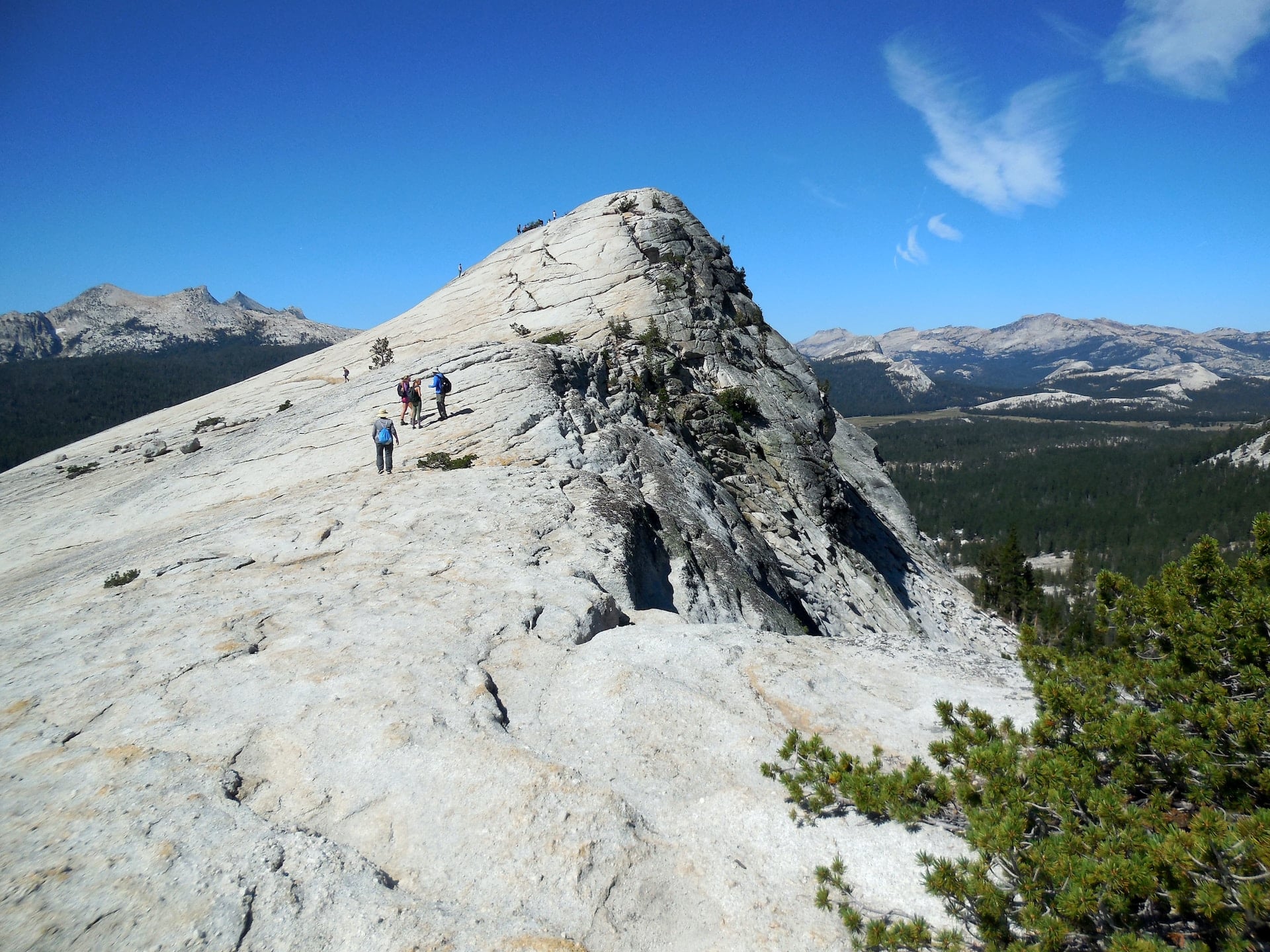Affiliate marketing is great for outdoor adventure guides looking to increase their website traffic, boost brand awareness, and expand their reach. You’ve probably seen affiliate marketing at work. Namely through blogs or social media posts. If you clicked on their link and bought the product or service, then that affiliate marketer was paid a commission based on your purchase.
From finding an affiliate network to deciding on how much you’ll pay for a booking, there is a lot to consider when starting an affiliate program. Keep reading to see how affiliate marketing and adventure tour providers work together.
Table Of Contents
Affiliate Marketing — What Is It?
Affiliate Marketing — How Does It Work?
Is Affiliate Marketing Right For Your Business?
How To Get Started With Affiliate Marketing

Affiliate Marketing — What Is It?
Essentially, affiliate marketing is a partnership between an affiliate, or, marketer, and a company (you). The affiliate posts a unique URL on their website or social media platform. Then, the company pays the marketer when the customers they refer to the company buys that service.
It’s also called “performance-based marketing” because affiliates only get paid when there’s a sale for the company. In other words, they’re kind of like salespeople for a company.
You may have seen affiliate marketing at work on TripAdvisor or Kayak when they review destinations. They’ll write a review on the destination, promote it through their website, social media platforms, and email newsletters, and include a link to whatever brand they’re promoting. If you click on that link and pay for the service, TripAdvisor/Kayak earns a commission from that.
Some companies pay per lead and others will only pay when a customer buys their service. By only paying commissions when a customer buys something from you, you get new customers at a guaranteed rate.
There are four key players in an affiliate program:
- Affiliate/Marketer: This is the brand or person selling your service.
- The Company (you): The brand or company paying affiliates commissions.
- The Affiliate Network: The software tracking website traffic and sales.
- The Consumer: The person visiting the affiliate’s website, clicks the link, and buys the service from the Company.

Affiliate Marketing — How Does It Work?
Some people wonder, “does affiliate marketing still work?” and the answer is yes. 81% of brands have affiliate programs. According to Truelist, “More than 40% of marketers in the country say affiliate programs are their top customer acquisition channel.” With the rise of influencers on social media, this number will continue to grow.
The simple and most effective way is to get on an affiliate network. There are countless options so research will be key. Brands and companies create a profile, list their services or products, and determine the commission rate.
The Gist Of Affiliate Marketing
Affiliates, or marketers, apply or sign up to advertise your service. They’re assigned a specific URL with tracking parameters that communicate with your website. When their audience clicks their unique URL and visits your website, you pay them the set commission when that consumer books a reservation with you.
If you don’t have a competitive commission rate, you’ll get very few affiliates marketing your outdoor adventure tour. It’s imperative that you offer something valuable to make their time worth sending you traffic.

Is Affiliate Marketing Right For Your Business?
While businesses big and small utilize affiliate marketing, it can work particularly well for small businesses. It’s like hiring a salesperson and only paying them when they’ve generated an outdoor adventure booking for you. Plus, affiliates are treated like contractors so you don’t have to pay them health insurance or provide benefits.
Benefits
Hand Pick Your Affiliates
Being able to pick who you want representing your brand gives you a bit more control over the marketing process. You can review the affiliate’s social media platforms and website to determine if their audience is also interested in the outdoor adventure tours you provide. You can decide whether or not they’ll represent your brand well.
Targeted Traffic
With an affiliate marketer, they already have an engaged audience (or at least they should). Plus, it’s an audience that trusts them and their recommendations. With that, you get to target your audience through them without having to hope that one of your display ads within another blog will work or not.
Pay For Performance And Sales
Another great benefit of affiliate marketing is only paying for bookings. Unlike PPC (pay-per-click) campaigns where you pay for every click (whether that leads to a sale or not), you only pay for a sale. This helps small tour operators that don’t have a marketing budget.
Low Risk
You’re not just throwing money at Google and telling it to show your ad between such-and-such time and hope for a qualified lead. With affiliate marketing, your leads are more likely to be qualified and if not, you only pay for the sales. If a marketer sends a ton of traffic your way, you still only have to pay for what’s booked.
Semi-Autopilot
There is an initial investment of time at the beginning when setting up your affiliate program, but if you use an experienced platform, it can nearly run itself. Depending on the platform, you can be as involved as you want every day or you can simply review reports. It bears mentioning that the more involved you are, the better results you’ll see.
Disadvantages
There are a few disadvantages to affiliate marketing, which we’ll briefly mention.
You Don’t Control The Messaging
If you take a hands-off approach to choosing your affiliates, you don’t get to control how they represent your guiding business. Affiliates are looking to make money and sometimes, they don’t do it the most honest way.
Lead Quality Might Not Be As Good
Yes, we just said that you have a targeted audience through affiliate marketing, but depending on how the marketer writes about your brand, this could lead to poor quality leads. If you continue to receive poor leads, this could negatively impact your brand as well.
Hard To Recruit Affiliates
The affiliate marketing industry is competitive, like most things. It can be difficult to recruit your own affiliates. If that’s the case, then signing up on a platform will be helpful for you.

How To Get Started With Affiliate Marketing
Step 1: Set clear goals for your affiliate marketing program
If you want this to be successful, setting a SMART goal will help you track your results. This goal could be building your brand, competing locally, improving booking rates, building reservation consistency, or extending your business’s reach.
It’s also worth seeing what other adventure guiding businesses are doing. What content is driving them sales through affiliate marketing, and what is their commission structure?
Step 2: Find an affiliate network
Below is a big list of affiliate networks you can explore. They all have different fees and types of affiliates on their platform. They vary between creative capabilities as well as how and when they pay out on commission.
Also, the research will take some time but you want to find a platform that’ll benefit your guiding business, not destroy it.
Step 3: Determine your payment structure
The average affiliate commission rate is between 5-30%. To figure out the best way to set up a payment structure is to consider your customer lifetime value. How much money do your guests bring to you throughout their time as your customer?
Knowing this, you’ll be able to figure out a commission rate that’s affordable and sustainable. Additionally, doing some competitor research can also give you insight into what the going rate is.
Then decide if you want to pay per click, pay per lead, or pay per booking.
Step 4: Find the right affiliates for your guiding business
Next, finding a good affiliate marketer also takes time unless you take a more hands off approach. A lot of affiliate marketers are bloggers and social media influencers. They typically have a large number of followers on Twitter, Instagram, and YouTube.
Whether you search for them yourself or have a pool from which to choose on an affiliate platform, there are some qualities you want to consider:
- Are they transparent? Affiliate marketers must disclose if they receive a commission on sales generated.
- Do they have high engagement rates on their social media posts?
- How big is their following?
- Do they post consistently (both on social and on their blog)?
Step 5: Track your results to improve your affiliate marketing program
Finally, in order to determine whether or not your affiliate marketing is working, you need to track the click-through rate and conversion rate. Luckily, most affiliate networks offer reporting, which helps you see if you’re getting a high return on your investment.
Affiliate Marketing Networks
Here’s a list of some of the top affiliate marketing networks to explore:
This post is part of our Digital Marketing Series:
Intro To Digital Marketing For Professional Adventure Guiding Services
Why The Stages Of The Buyer’s Journey Matter For Adventure Tourism
An Introduction to Tourism SEO For Outdoor Guides
Is Paid Search Worth It For Adventure Tour Guides?
Is Display Advertising Useful For Your Adventure Guiding Company?
4 Advantages Of Content Marketing For Adventure Guides
Can Social Media Marketing Help Grow Your Adventure Guiding Business?








